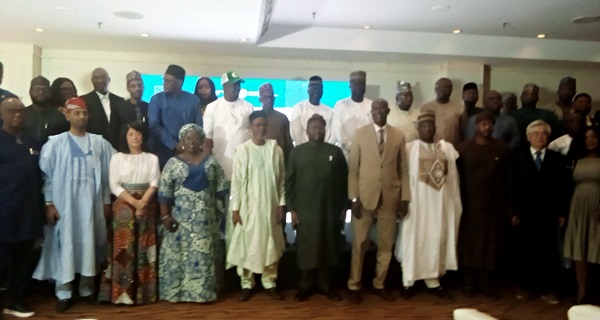
The Federal Government, in collaboration with the European Union (EU) has embarking on a groundbreaking initiative to propel hydropower development and advance circular economy practices in Nigeria.
This partnership aims to drive sustainable energy production and economic growth, setting the stage for achieving net zero emissions by 2060.
Under the framework of the EU’s Multilateral Indicative Programme 2021-2027 and the Action Document for EU Nigeria Cooperation Programme for Sustainable Energy Sector in Nigeria Phase 1 (NCProSES), the United Nations Industrial Development Organisation (UNIDO) is spearheading a three-year project titled “Promoting Small Hydropower Development and Circular Economy Approaches in Nigeria”. This initiative, hosted in Abuja, seeks to revolutionise energy production and consumption patterns in Nigeria.
NCProSES is designed to support Nigeria’s transition to a low-carbon economy by leveraging renewable energy sources, enhancing energy efficiency, and reducing greenhouse gas emissions. The project comprises two key components aimed at addressing critical challenges and fostering sustainable development.
Component 1, known as “Small Hydro Power Development for Agro-industry Use in Nigeria (SHP-DAIN)”, is focused on bolstering the capacity of small hydropower (SHP) in the energy mix. This initiative aims to promote productivity along agricultural value chains, stimulate economic growth, and improve livelihoods, thereby fostering food security and creating decent work opportunities.
Meanwhile, Component 2, titled “Advancing Nigeria’s green and just transition to Net Zero through circular economy practices”, seeks to enhance the management of used off-grid energy equipment and plastics through circular economy principles. By adopting circularity, the project aims to minimise waste, maximise resource efficiency and foster a regenerative economy that benefits both people and the planet.
The Minister of Power, Mr. Adebayo Adelabu, emphasised the pivotal role of energy in daily life, asserting that power is essential for sustenance and development. He reiterated the ministry’s commitment to overcoming challenges in the power sector, highlighting the small hydropower development for the agro-industry use in Nigeria project as a beacon of hope for a sustainable future.
Adelabu underscored the importance of decentralising the power model to extend electricity access to rural areas, emphasising the need for collaborative efforts to eradicate energy poverty and drive economic progress.
Echoing similar sentiments, the Minister of the Federal Ministry of Environment, Mr. Balarabe Lawal, emphasised the transformative potential of circular economy practices in achieving Nigeria’s net zero targets by 2060. He highlighted the significance of collaboration with the EU in promoting innovation and adopting greener technologies to combat pollution and climate change.
Lawal outlined various policies and regulations developed by the Federal Ministry of Environment to support and promote circular economy principles, including waste management and recycling initiatives. He underscored the importance of the circular economy conference roadmap, aimed at fostering circularity and sustainability in Nigeria’s economic landscape.
In his address, the United Nations (UN) assistant secretary-general and resident/humanitarian coordinator for Nigeria, Mr. Mohamed Fall emphasised the project’s role in supporting Nigeria’s transition to a low-carbon economy. He highlighted the project’s direct impact on energy access and climate change mitigation, calling upon stakeholders to seize this opportunity to improve welfare and foster sustainable development.
Dr. Osuji Ottu, representing the UNIDO National Programme Office in Abuja, highlighted the project’s focus on supporting energy for agriculture in rural areas. He outlined plans to implement pilot projects in selected states, aiming to harness the potential of hydropower and circular economy practices to drive inclusive growth and environmental sustainability.
Overall, the collaboration between the Federal government, the EU and UNIDO represents a significant step towards achieving sustainable energy production and economic development in Nigeria. With a focus on innovation, collaboration, and inclusive growth, this initiative holds promise for transforming Nigeria’s energy landscape and fostering a more resilient and prosperous future for all.

